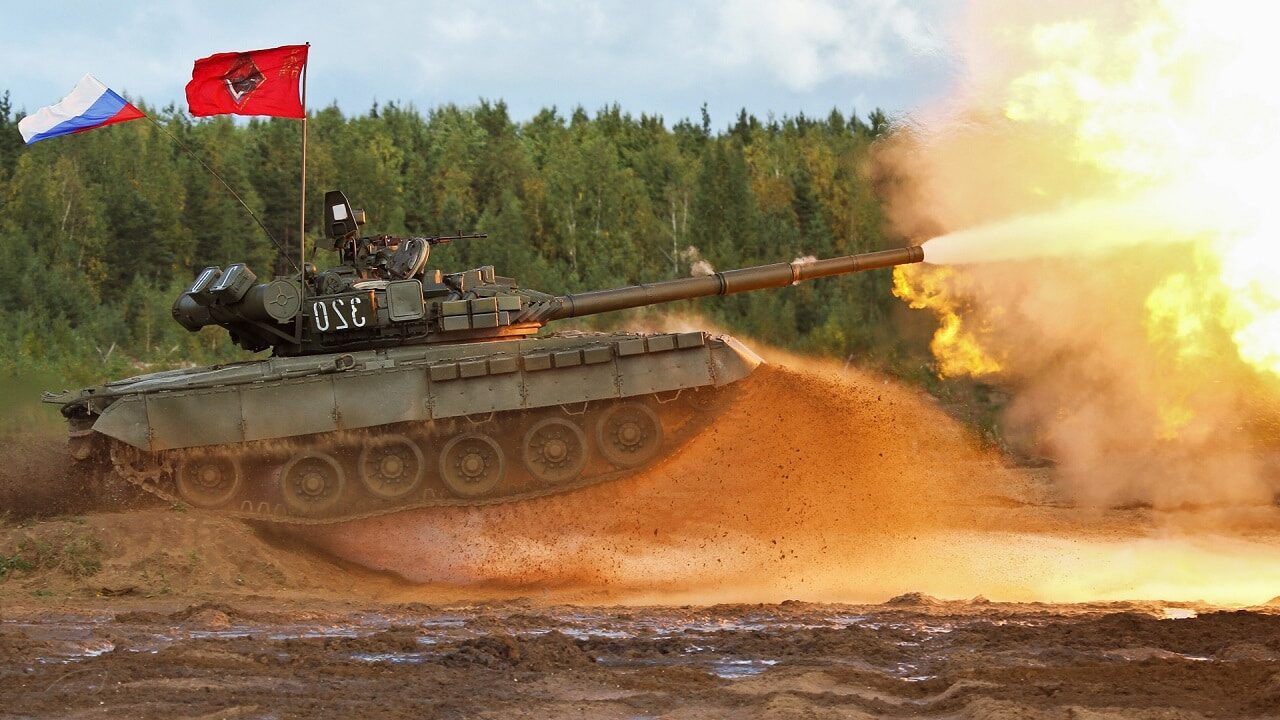Can Russia Really Win in Ukraine? The international community’s initial stiff response to the unprovoked Russian invasion of Ukraine is changing as more countries send military assistance to Ukraine and impose new waves of sanctions on Russia and its leadership.
In addition to the U.S., which approved another wave of military aid, dozens of countries are sending weapons to Ukraine.
Anti-Tank and Anti-Aircraft Missiles For Everyone
As the international finally understood the malicious strategy of Russian President Vladimir Putin, weapons and medical and humanitarian aid has started flowing into Ukraine. It is truly an unprecedented show of solidarity to the Ukrainian people with many nations, including states that were notoriously “neutral” or “skeptical” before the Russian invasion—for example, Germany—sending weapons to Ukraine.
The weapons deliveries include, among other shipments, 1,000 anti-tank and 500 anti-aircraft weapons from Germany, 50 anti-tank and 200 anti-air weapons from the Netherlands, 100 mortars, 8 drones, and ammunition from Poland, 2,000 light machine guns, and 3,800 tons of fuel from Belgium, 12,000 mines and fuel from Slovakia, FIM-92 Stingers from Latvia, machine guns, rifles, and ammunition from the Czech Republic. Moreover, Sweden—a famously peaceful nation that hadn’t sent military aid to another country since the Finno-Russian War of 1939, when it sent weapons to Finland—is sending 5,000 helmets, 5,000 body armor kits, 5,000 AT-4 anti-tank weapons, and 135,000 field rations.
Greece also sent two C-130s full of materiel to Ukraine through Poland.
“The Russian invasion of Ukraine marks a turning point. In this situation, it is our duty to do our utmost to support Ukraine in defending itself against Vladimir Putin’s invading army,” German Chancellor Olaf Scholz said to explain the significant shift in German foreign policy.
U.S. defense officials have said that despite Russian territorial gains near Kyiv, the flow of arms into Ukraine hasn’t been affected.
The international response against the Russian invasion is also starting to show. French warships intercepted a Russian cargo ship heading to Saint Petersburg in the English Channel over suspicions that it was violating the newly imposed sanctions. In addition, Turkey barred the passage of Russian warships to the Black Sea from the Bosporus in Constantinople.
The U.S. Factor
The U.S. has also committed significant military aid to Ukraine. On Friday, the State Department approved an additional $350 million in military aid to Ukraine, which means that the U.S. has given Kyiv more than $1 billion over the past year.
“Last fall, as the present threat against Ukraine from Russia developed, under authority delegated by the President, I authorized the Department of Defense to provide $60 million in immediate military assistance to Ukraine. In December, as that threat materialized, I authorized a further drawdown worth $200 million. Today, as Ukraine fights with courage and pride against Russia’s brutal and unprovoked assault, I have authorized, pursuant to a delegation by the President, an unprecedented third Presidential Drawdown of up to $350 million for immediate support to Ukraine’s defense. This brings the total security assistance the United States has committed to Ukraine over the past year to more than $1 billion,” Secretary Antony Blinken said in a press release.
According to the State Department, the additional military aid package will include defensive aid that will help the Ukrainian military to deal with mainly armored and airborne threats. That would most probably translate to more FGM-148 Javelin anti-tank and FIM-92 Stinger anti-aircraft weapons.
U.S. defense officials also reiterated Washington’s commitment to the territorial integrity of NATO.
“NATO is a defensive alliance, always has been, always will be. It’s not a threat to Russia. Number two, Russia doesn’t get to veto who becomes a member of NATO or not. Russia doesn’t get to tell a country who it’s going to associate with or not. That is for that nation and for the alliance. And number three, as far as our concern about what Mr. Putin’s doing, I think the proof is in the pudding and that is what we’re doing, including yesterday, when the President announced additional troops to go to Europe from the United States to bolster our allies and to make clear to Mr. Putin, as the President has said, that we will defend every inch of NATO territory,” a senior U.S. defense official said on Friday.
1945’s New Defense and National Security Columnist, Stavros Atlamazoglou is a seasoned defense journalist specializing in special operations, a Hellenic Army veteran (national service with the 575th Marine Battalion and Army HQ), and a Johns Hopkins University graduate. His work has been featured in Business Insider, Sandboxx, and SOFREP.

